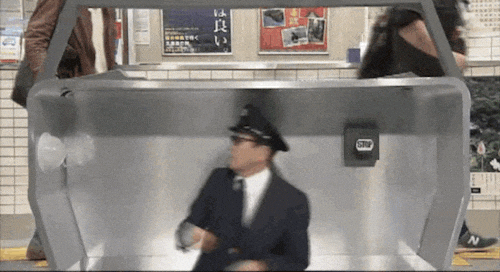The Unofficial Provocations; UP @ THE SPOT; Tickets, scams and bad actors; How much entertainment can sport take?; Weird AI is coming for you
Overthinking the sports business, for money
Road Trip
It’s springtime-ish, which is when Unofficial Partner hits the road.
We’ll be appearing at a venue near you soon over the coming months.
The approach to live podcasts starts with a provocation.
This forces the conversation to move beyond ‘he said, she said, I agree with Timothy’ type conference blah blah and in to more interesting territory.
So, I make a point of collecting them. Here’s a few to be starting with:
The Unofficial Provocations
The number’s always wrong
Other People’s Money: The sports market can remain irrational longer than you can stay solvent
Knife to a gunfight: sport is selling TV subscriptions to doom scroll addicts.
The same or different: Women’s sport doesn’t fit a market built by men for men.
Sports marketing is a cause of obesity, not the cure
Fan engagement is a euphemism for betting; Gamification is the gateway drug
Being There: Longevity of tenure is more important than campaign activation
Enshittification of sport - an adaptation of Cory Doctorow’s premise that platforms start out to serve users but then degrade to better serve corporate interests.
Lies, Damned Lies and Major Event Economic Impact Statistics
Soft power is something weak countries talk about
We could go on. You get the picture.
Reframing a passive subject is more interesting for everyone: panellists, audience and podcaster.
Which brings us to:
UP@THE SPOT
We’re off to Lausanne, the home of the Olympic Movement. What could go wrong?
Our hosts are Think Sport, curators of THE SPOT, which takes place at the Olympic Museum on May 13th - tickets and details available below.
We’ve been asked to create a conversation around the current vogue for new product formats.
So…
How much entertainment can sport take?
Session brief:
The sports business has a new verb: To Netflixify
“Netflix plans to "Netflixify" any sports they get involved in, investing heavily in storytelling and unique productions”.
So said Greg Peters at the FT Live event.
Netflix has entered the sports rights market: NFL. FIFA Women’s World Cup. Boxing. WWE…and coming soon, F1 in the US.
The challenge for every sports federation and rights holder in the room is clear: if you want Netflix’s money, you have to give them what they want: Sport as entertainment. Athlete as creator. Stories not tournaments.
Around the world, the market is responding to the entertainment incentive.
Unrivalled, Kings League, Padel Pro League, TGL, LIV Golf, The Hundred, Power Slap, Major League Cricket to Major League Fishing Bass Pro Tour...
Adapt the product or be disrupted.
But what does this mean, really?
And what are the implications for sports various constituencies of fans, athletes, leagues media and tournament rights holders?
Outro: What's the difference between sport and entertainment?
If you want to join us, you’ll need a ticket.
And luckily there’s an early bird offer running till the end of March.
See you there.
By your tickets shall we judge you
Nothing reveals an organisation as clearly as how they deal with their own customers.
In this way, the ticket business IS the sports business.
But everything about the experience is a problem, from price to availability to the transparency and efficiency of the transaction. And that’s before you get to dynamic pricing, which is a great idea until it meets real life.
So it was a thrill to spend time talking with two of the industry’s leading experts on the subject, Stuart Cain and David Hornby.
The Paradox of Underpriced Tickets:
Economists argue that primary market ticket prices are often set artificially low by artists who are sensitive to public perception and want to avoid appearing to rip off their own fans. The middle men say that this causes the problem, and that underpricing creates a large gap between the initial sale price and the price the market would actually bear, leading to a lucrative secondary market. If a ticket price is too low, the seller - club, rights holder or venue - is leaving money on the table. But the resale market doesnt’ work either, because the profits from the underpriced tickets, instead of going to fans go to ticket brokers, or rent seeking secondary-market operators.
Tech was supposed to solve this problem.
But software bots used by scalpers can quickly snatch up large quantities of the best tickets, preventing ordinary fans from accessing them. In a Freakonomics podcast, Ken Lowson, a former ticket broker who invented ticket bots, acknowledged their effectiveness in exploiting vulnerabilities in ticket sales systems: "Well, the bots came along, and we saw that volume jump. Now, you could buy hundreds of times more seats."
Lowson argues that the focus on bots is a "red herring," claiming that scalpers could only obtain the number of seats initially offered for sale. "The bots are really a red herring, because we could only get the amount of seats that they would sell."
Often the ego of the star is the problem. Artists often value the ability to announce "sold out" shows quickly, even if it means underpricing tickets. This amplifies their desirability. But it undermines the economic argument. If you sold out in a minute, you underpriced.
That’s a long way of saying, tickets is a shitshow, and probably always has been.
Unofficial Second Brain: Theme of the week in AI is weird
Liked Storythings daily updates from SXSW.
Nice quote here on weird-washing and how tech is used to ‘auto tune humans’
Tyler Cowan on keeping his writing weird
Weird new jobs will appear
This will get to the sport and business niche quite quickly imho, bright young things paid to correct the LLMs, so they learn on the right things.

 Tiktok failed to load.
Tiktok failed to load.Enable 3rd party cookies or use another browser





